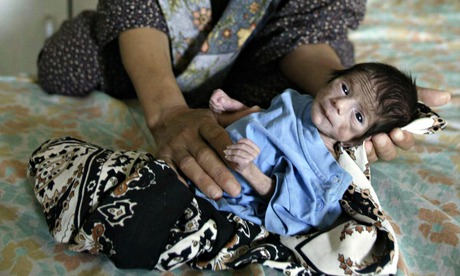
Jeffrey Spector, right, at dinner with his family, said his condition could have left him with neck-down paralysis at any moment and he believed in his right to dignity. Photograph: Warren Smith
A businessman with an inoperable tumour has killed himself at an assisted dying clinic in Switzerland – after spending his last seven days making a film for his widow and three children.
Jeffrey Spector died on Monday, six years after he was diagnosed with an inoperable tumour that was growing near his spinal column.
Doctors had warned him the condition would eventually lead to paralysis and death and so Spector said he decided he wanted to be in control of the final stages of his life.
When his illness began to get worse he decided that he had no option but to travel to Switzerland due to UK law. He said: “Assisted suicide is illegal in the UK so it had to be Switzerland.”
He added that he decided it was time when his symptoms increased in severity. “I put one date off so that my daughter could do her exams – but I was going downhill and was finding it hard to use my hands. I had no pressure in my fingers.
“I felt the illness had crossed the red line and I was getting worse. Rather than go late, I am jumping the gun. I call it the least worst option, which is best for my family in the long term.”
Spector, who was the director of a number of advertising and internet firms in Blackpool, Lancashire, chose to be joined by a film crew for the last week of his life. His decision to be filmed has echoes of the death of Guernsey-based hotelier Peter Smedley, whose assisted death in 2011 was screened in a documentary by the late Sir Terry Pratchett for the BBC.
Spector, whose family joined him at the Zurich clinic, described his condition as “a walking timebomb” as he could be struck with neck-down paralysis at any moment.
In an interview released by Dignitas, Spector said he was not scared of death and added: “Never judge someone until you have worn their shoes.
“I know I am going too early. My family disagree, but I believe this is in their best interests.” Stating he wanted to be “in control of the final stages of my life”, he said: “I was a fit and healthy person and my life has been turned upside down.
“What started as backache in 2008 developed into an illness that led me to having to make this most awful decision. Friends, and most of all my family, have urged me not to go through with it.”
Spector first discovered he was ill when he complained of having a sore back and stiff neck. He collapsed at a hotel after attending a friend’s retirement party and sought medical advice. He said: “I thought I had overdone things. My legs went in the hotel room. I got back home and booked in for an MRI scan.
“The phone call from the clinic asked me to go for another scan, which revealed a large tumour high up in my spine in and around the spinal cord.
“My surgeon was confident he could remove the tumour but tests revealed it would be too dangerous. I woke up thinking it would be out, but he told me he could not even take a biopsy.”
Instead, surgeons removed bones elsewhere in his back to relieve pressure caused by the tumour, but it continued to grow.
Spector added: “Had it been lower down the spine, and I lost the use of my legs, I would have been distraught but I could cope. Where it was meant total paralysis from my neck down.”
As the tumour grew, Spector visited the Dignitas clinic and decided that he would kill himself before the tumour’s advance meant he would be unable to do so.
He said: “I know I am going too early but I had consistent thoughts without peer pressure. It had to be a settled decision by a sound mind. If I am paralysed and cannot speak, then what hope is there? I am a proud person – a dignified person, independent and self motivated. It is me who is doing this.”
In the UK, anyone convicted of assisting a suicide can face a 14-year jail term. Pressure group Dignity In Dying, which counted Pratchett as one of its patrons, have long campaigned to change the law.
Labour peer Lord Falconer proposed a bill stating that if someone has a prognosis of less than six months to live, they should be allowed to have an assisted death subject to a number of safeguards and checks. His private member’s bill was debated in the House of Lords in June 2014 and reached the committee stage in parliament in January. However, due to opponents delaying its progress, the bill did not reach the Commons before parliament was dissolved ahead of the general election.
“Some people will criticise me, but do not judge me,” said Spector. “I believe in my human right to dignity. I want the ability to have a cup of tea and hold a phone – I want to be able to do those things myself.
“I believe what I am doing is in the best long term interests of my family. They disagree, but they do accept I have my own opinion.”
A family friend said on Monday: “Jeffrey was not for changing his mind. He did not want to be unable to walk or talk.
“From the outside he appeared as normal – chatty, driving his car, but inside he knew he was getting worse. People have tried to talk him out of this, his own family have begged him.
“But if Jeffrey Spector could not be the Jeffrey Spector we all knew, because of this tumour, this was his way out.”

